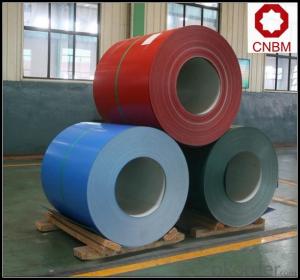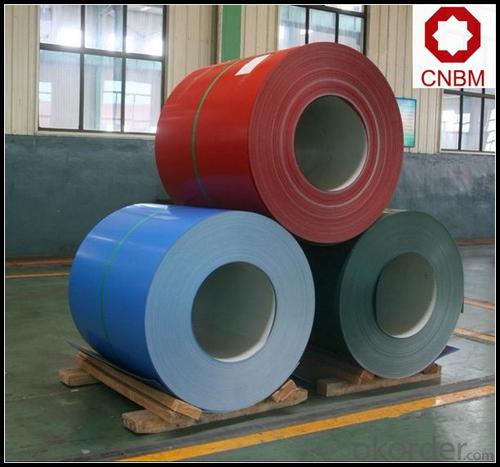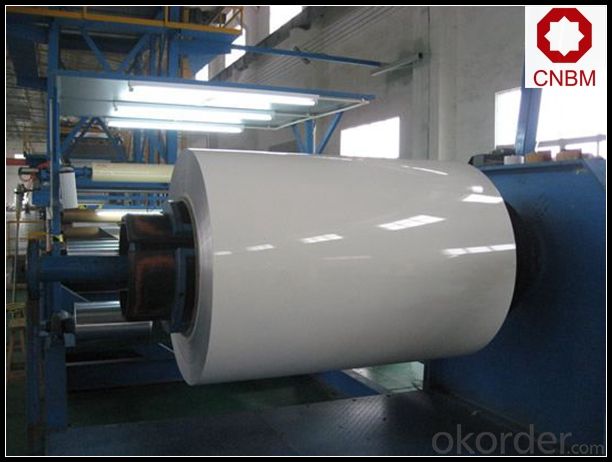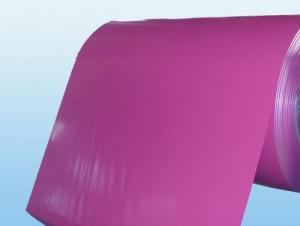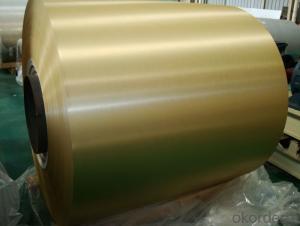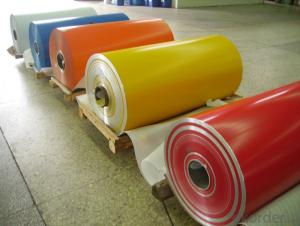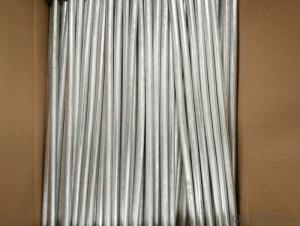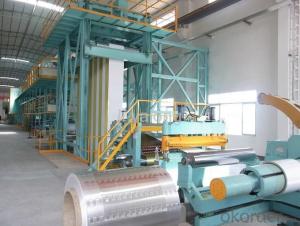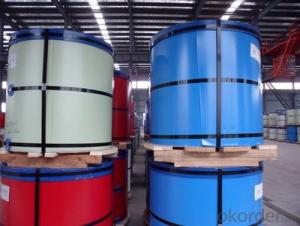Aluminum Coil Anodizing Positive Aluminium Coil T3-T6 & Aluminum Voice Coil Streamwood IL
- Loading Port:
- Shanghai
- Payment Terms:
- TT OR LC
- Min Order Qty:
- 5 m.t.
- Supply Capability:
- 10000 m.t./month
OKorder Service Pledge
OKorder Financial Service
You Might Also Like
Specification
1. Specification of Positive Aluminium Coil T3-T6& Aluminum Voice Coil
Thickness | 0.1mm-10mm |
Popular Thickness | 0.1mm/0.2mm/0.25mm/0.3mm/0.6mm/0.8mm/1.0mm/1.2mm/1.5mm/2.0mm/3.0mm... |
Width | 20mm-2500mm |
inner diameter | 505mm 508mm 605mm |
Material | 1050,1060,1070,1100,1200,3003,3004,3005,5052,5005,5754,5083 |
Temper | O,H12,H14,H16,H18,H22,H24,H26,H32,H34,H36,H38,H111,H112 |
Surface | mill finish |
Packing | Export standard wooden pallets |
Payment Terms | 100% irrevocable L/C at sight or 30% T/T in advance as deposit,70% balance against the B/L copy |
Minimum Order Quantity | 5000kg |
Delivery time | 15-25 days after receiving L/C or deposit |
Remark | Specific requirement of alloy grade, temper or specification can be discussed at your request |
2. Application of Positive Aluminium Coil T3-T6& Aluminum Voice Coil
(1).Interior: wall cladding, ceilings, bathrooms, kitchens and balconies, shutters, doors...
(2).Exterior: wall cladding, facades, roofing, canopies, tunnels,column covers , renovations...
(3).Advertisement: display platforms, signboards, fascia, shop fronts...
3. Feature of Positive Aluminium Coil T3-T6& Aluminum Voice Coil
*Such coil is specially designed to replace aluminum ingot, due to the high export tax of aluminum ingot, the coil has better price than ingot.
*This type of coil can fit customer's remelting furnace just like ingot, no need to make any change to the production line that was previously used for ingot. The standard coil size and weight is very suitable for the feed gate of furnace.
*This type of coil causes less material wastage than ingot when remelted.
*Our coil is made directly from ore, no need to go though the ingot making process, quality is much better than other suppliers who use ingot scrap to make coil.
Be free from Oil Stain, Dent, Inclusion, Scratches, Stain, Oxide Dicoloration, Breaks, Corrosion, Roll Marks, Dirt Streaks and other defect which will interfere with use
4. Certificate:
SGS and ROHS(if client request, paid by client), MTC(plant provided), Certificate of Origin(FORM A, FORM E, CO), Bureau Veritas and SGS (if client request, paid by client), CIQS certificate
5. Image of Positive Aluminium Coil T3-T6& Aluminum Voice Coil
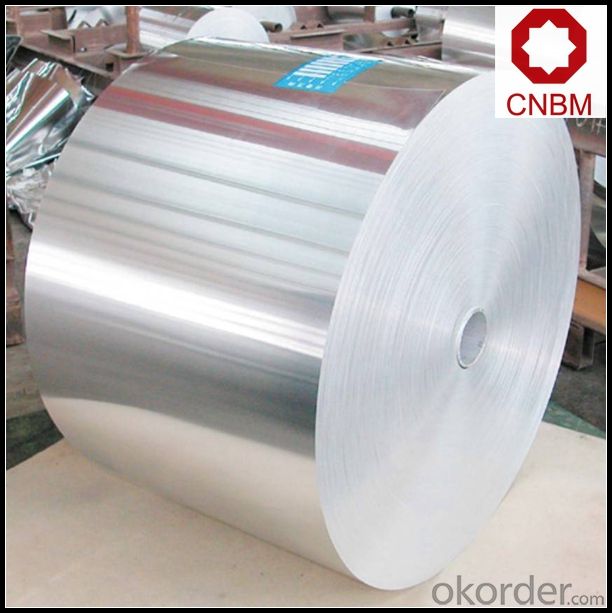
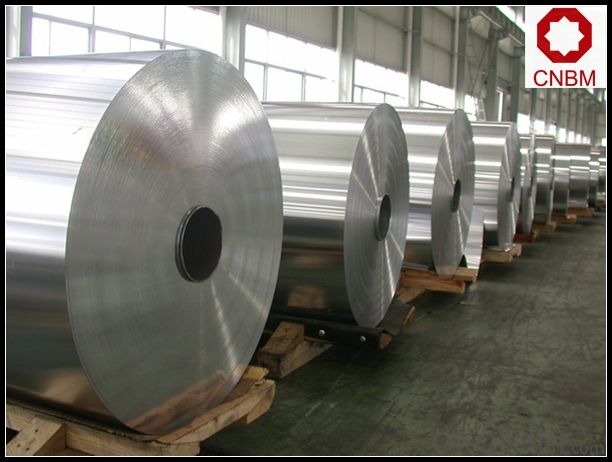
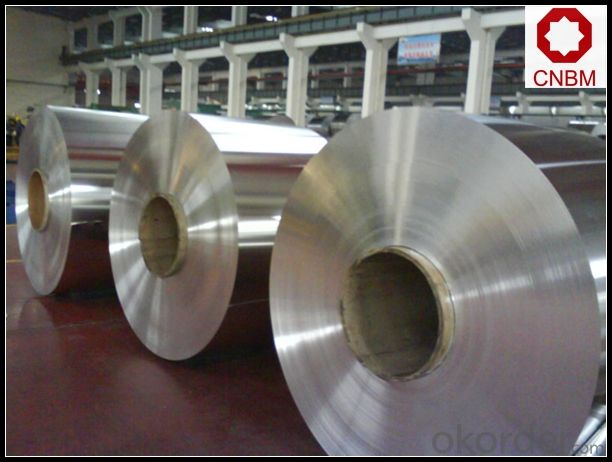
6. Package and shipping of Positive Aluminium Coil T3-T6& Aluminum Voice Coil
eye to wall
eye to the wall
with wood pallet (wooded case also available)
7. FAQ
1) What is the delivery time?
Dpends on actual order, around 20 to 35 days
2)What is the QC system:
We have QC staff of 20 persons and advanced equipment, each production is with MTC traced from Aluminum ingot lot.
3) What market do you mainly sell to?
Australia, America, Asia, Middle East, Western Europe, Africa etc
- Q: Can aluminum coils be used in cryogenic applications?
- Indeed, cryogenic applications can utilize aluminum coils. Highly regarded for its remarkable thermal conductivity, aluminum proves to be an appropriate substance for heat transfer in environments with low temperatures. Moreover, aluminum exhibits a minimal coefficient of thermal expansion, enabling it to endure the drastic temperature fluctuations inherent in cryogenic applications while avoiding notable alterations in dimensions. Nevertheless, it is important to acknowledge that aluminum coils might necessitate specific design or treatment to guarantee their resilience against exceedingly frigid temperatures and mitigate any potential concerns like brittleness or embrittlement.
- Q: This question asks for a comparison between aluminum coil and aluminum foil, highlighting their differences.
- <p>Aluminum coil and aluminum foil are both made from aluminum but differ in form and usage. Aluminum coil is a long, continuous roll of aluminum that is typically thicker and more rigid than foil. It is used in various applications such as construction, manufacturing, and packaging due to its strength and durability. Aluminum foil, on the other hand, is a thin, flexible sheet of aluminum that is often used for food packaging, cooking, and insulation. It is lighter and more delicate than coil, making it unsuitable for heavy-duty applications. The primary distinction lies in their thickness, strength, and versatility across different industries.</p>
- Q: What are the typical lead times for ordering aluminum coils?
- The typical lead times for ordering aluminum coils can vary depending on various factors such as the supplier, quantity, customization requirements, and current market conditions. However, on average, lead times can range from a few weeks to a couple of months. It is advisable to contact the specific supplier for accurate information regarding their lead times.
- Q: Are aluminum coils compatible with different joining methods?
- Different joining methods can be used with aluminum coils. Aluminum, a versatile metal, can be joined using techniques like welding, brazing, soldering, and mechanical fastening. The choice of method depends on the specific application and desired joint properties. To join aluminum coils, welding is commonly used as it creates a strong and durable bond. Various welding techniques, such as MIG, TIG, and resistance welding, can be employed based on the thickness and alloy type. Brazing is another effective method for joining aluminum coils. It involves heating a filler material with a lower melting point than the base metal to create a strong joint. Brazing is suitable when joining aluminum coils with dissimilar metals. For thin aluminum coils or when a lower temperature method is necessary, soldering is a suitable option. It involves melting a low-temperature alloy (solder) to join the coils together. Soldering finds common use in electronics and plumbing applications. Mechanical fastening methods like bolts, screws, rivets, or clips can also be used to join aluminum coils. These methods provide a reliable and removable joint, making them appropriate for applications requiring disassembly. In conclusion, different joining methods, including welding, brazing, soldering, and mechanical fastening, can be used with aluminum coils. The choice depends on factors like the application, alloy type, and desired joint properties.
- Q: What are the strength properties of aluminum coils?
- The strength properties of aluminum coils include high tensile strength, excellent formability, and good resistance to corrosion. Aluminum coils have a high strength-to-weight ratio, making them a preferred choice in various industries such as automotive, aerospace, and construction. They exhibit good resistance to fatigue and are capable of withstanding heavy loads without deformation or breakage. Additionally, aluminum coils offer excellent formability, allowing for easy shaping and bending without compromising their structural integrity. Moreover, aluminum's natural oxide layer provides a protective barrier against corrosion, making aluminum coils highly resistant to rust and other forms of degradation. Overall, the strength properties of aluminum coils make them a versatile and reliable material for a wide range of applications.
- Q: Is it possible to utilize a press machine to bend aluminum coils?
- <p>Yes, you can use a press to bend aluminum coils. Presses are versatile machines capable of bending various materials, including aluminum. However, it's crucial to select the appropriate press type and size for the specific coil dimensions and desired bend. Additionally, ensure the press has the necessary tonnage to handle the bending force required for aluminum. Using the right dies and lubrication can also improve the bending process and prevent damage to the coils. Always follow safety guidelines and consult with equipment specifications to ensure the press is suitable for bending aluminum.</p>
- Q: What are the various applications and purposes for which aluminum coils are utilized?
- <p>Aluminum coils have a wide range of applications due to their lightweight, corrosion resistance, and malleability. They are commonly used in construction for roofing and siding, in the automotive industry for car parts and body panels, in the packaging industry for cans and foils, and in electrical applications for wiring and transformers. Aluminum coils are also used in the manufacturing of heat exchangers, cooking utensils, and various consumer products. Their versatility makes them an essential material in many industries.</p>
- Q: Are aluminum coils suitable for weather-resistant applications?
- Yes, aluminum coils are suitable for weather-resistant applications. Aluminum is highly resistant to corrosion and can withstand harsh weather conditions, making it an ideal choice for outdoor applications such as roofing, siding, and HVAC systems.
- Q: Can aluminum coils be used in the production of transportation vehicles?
- Yes, aluminum coils can be used in the production of transportation vehicles. Aluminum is a lightweight and corrosion-resistant material, making it a popular choice in the automotive industry. Its high strength-to-weight ratio helps improve fuel efficiency, reduce emissions, and increase overall vehicle performance. Aluminum coils can be used to manufacture various components of transportation vehicles such as body panels, frames, chassis, and suspension parts. Additionally, aluminum's recyclability makes it environmentally friendly and contributes to the sustainability of the transportation industry.
- Q: How do aluminum coils perform under low-temperature applications?
- Aluminum coils generally perform well under low-temperature applications due to the metal's high thermal conductivity and excellent resistance to low temperatures. This allows the coils to efficiently transfer and distribute heat, making them suitable for various cooling and refrigeration systems. Additionally, aluminum's natural corrosion resistance helps maintain the coils' performance and durability in low-temperature environments.
Send your message to us
Aluminum Coil Anodizing Positive Aluminium Coil T3-T6 & Aluminum Voice Coil Streamwood IL
- Loading Port:
- Shanghai
- Payment Terms:
- TT OR LC
- Min Order Qty:
- 5 m.t.
- Supply Capability:
- 10000 m.t./month
OKorder Service Pledge
OKorder Financial Service
Similar products
Hot products
Hot Searches
Related keywords
